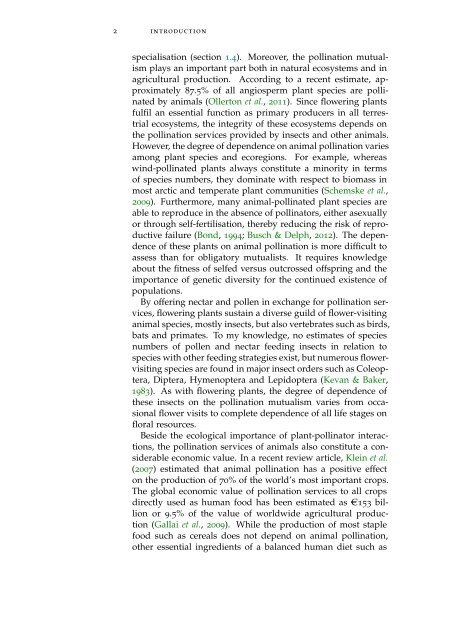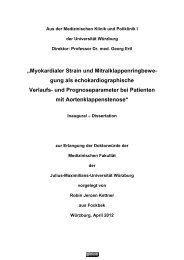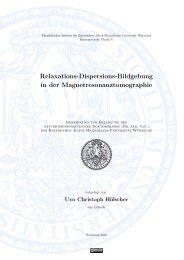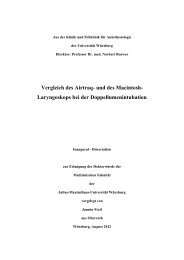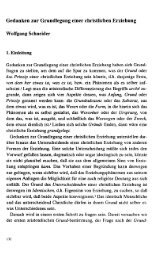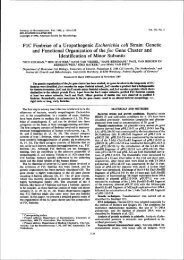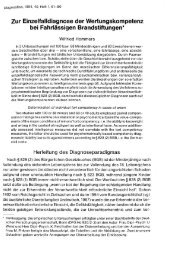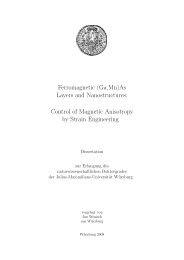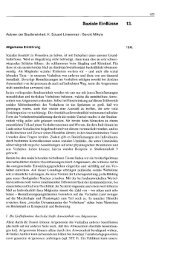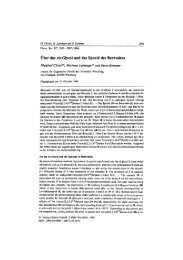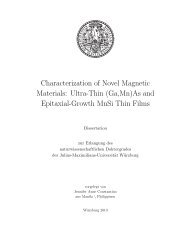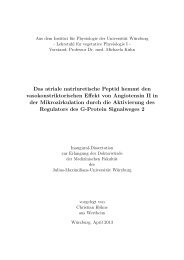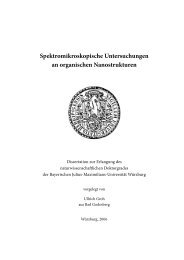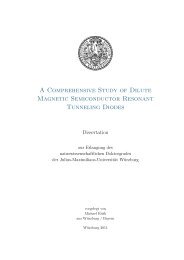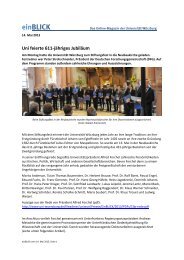Linking Specialisation and Stability of Plant ... - OPUS Würzburg
Linking Specialisation and Stability of Plant ... - OPUS Würzburg
Linking Specialisation and Stability of Plant ... - OPUS Würzburg
You also want an ePaper? Increase the reach of your titles
YUMPU automatically turns print PDFs into web optimized ePapers that Google loves.
2 introduction<br />
specialisation (section 1.4). Moreover, the pollination mutualism<br />
plays an important part both in natural ecosystems <strong>and</strong> in<br />
agricultural production. According to a recent estimate, approximately<br />
87.5% <strong>of</strong> all angiosperm plant species are pollinated<br />
by animals (Ollerton et al., 2011). Since flowering plants<br />
fulfil an essential function as primary producers in all terrestrial<br />
ecosystems, the integrity <strong>of</strong> these ecosystems depends on<br />
the pollination services provided by insects <strong>and</strong> other animals.<br />
However, the degree <strong>of</strong> dependence on animal pollination varies<br />
among plant species <strong>and</strong> ecoregions. For example, whereas<br />
wind-pollinated plants always constitute a minority in terms<br />
<strong>of</strong> species numbers, they dominate with respect to biomass in<br />
most arctic <strong>and</strong> temperate plant communities (Schemske et al.,<br />
2009). Furthermore, many animal-pollinated plant species are<br />
able to reproduce in the absence <strong>of</strong> pollinators, either asexually<br />
or through self-fertilisation, thereby reducing the risk <strong>of</strong> reproductive<br />
failure (Bond, 1994; Busch & Delph, 2012). The dependence<br />
<strong>of</strong> these plants on animal pollination is more difficult to<br />
assess than for obligatory mutualists. It requires knowledge<br />
about the fitness <strong>of</strong> selfed versus outcrossed <strong>of</strong>fspring <strong>and</strong> the<br />
importance <strong>of</strong> genetic diversity for the continued existence <strong>of</strong><br />
populations.<br />
By <strong>of</strong>fering nectar <strong>and</strong> pollen in exchange for pollination services,<br />
flowering plants sustain a diverse guild <strong>of</strong> flower-visiting<br />
animal species, mostly insects, but also vertebrates such as birds,<br />
bats <strong>and</strong> primates. To my knowledge, no estimates <strong>of</strong> species<br />
numbers <strong>of</strong> pollen <strong>and</strong> nectar feeding insects in relation to<br />
species with other feeding strategies exist, but numerous flowervisiting<br />
species are found in major insect orders such as Coleoptera,<br />
Diptera, Hymenoptera <strong>and</strong> Lepidoptera (Kevan & Baker,<br />
1983). As with flowering plants, the degree <strong>of</strong> dependence <strong>of</strong><br />
these insects on the pollination mutualism varies from occasional<br />
flower visits to complete dependence <strong>of</strong> all life stages on<br />
floral resources.<br />
Beside the ecological importance <strong>of</strong> plant-pollinator interactions,<br />
the pollination services <strong>of</strong> animals also constitute a considerable<br />
economic value. In a recent review article, Klein et al.<br />
(2007) estimated that animal pollination has a positive effect<br />
on the production <strong>of</strong> 70% <strong>of</strong> the world’s most important crops.<br />
The global economic value <strong>of</strong> pollination services to all crops<br />
directly used as human food has been estimated as AC153 billion<br />
or 9.5% <strong>of</strong> the value <strong>of</strong> worldwide agricultural production<br />
(Gallai et al., 2009). While the production <strong>of</strong> most staple<br />
food such as cereals does not depend on animal pollination,<br />
other essential ingredients <strong>of</strong> a balanced human diet such as


